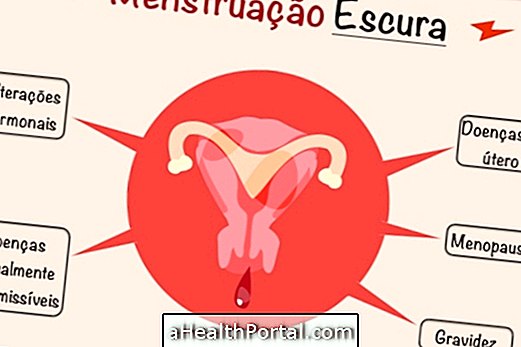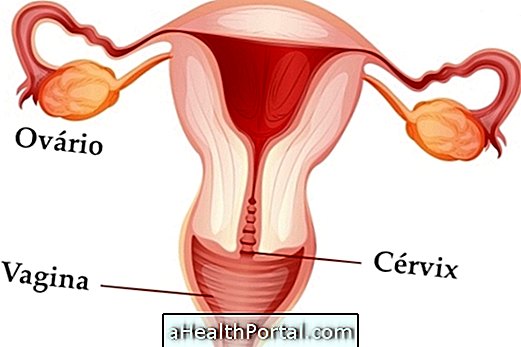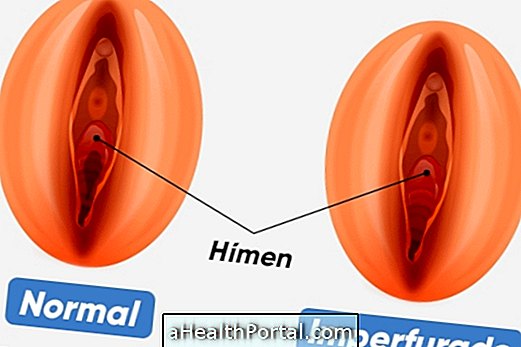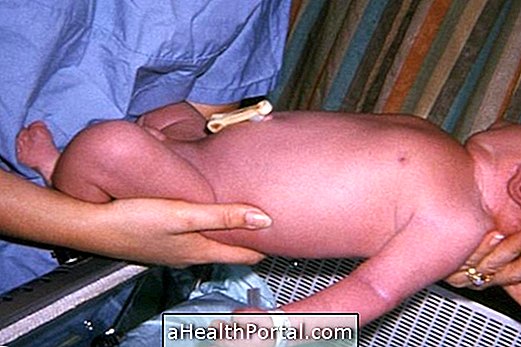Generally, dark and low-volume menstruation is normal and does not indicate any health problems, especially if it occurs at the beginning or end of menstruation. However, when this type of menstruation is recurring, it can be a sign of hormonal changes, problems in the uterus, stress or sexually transmitted diseases, for example.
In addition, when the woman starts taking the contraceptive pill for the first time, changes the pill or uses the morning-after pill, menstruation can also become darker or type of coffee grounds, returning to normal in the next cycle.

Main causes of dark menstruation
Black, brown, or coffee-type menstruation may be caused by:
1. Pregnancy
The onset of a small bleeding pink, brown or dark red is common in the first weeks of pregnancy because it is related to the time the embryo attaches to the walls of the uterus. Here are the signs that may indicate that there was fertilization, and that is why you may be pregnant.
However, when this bleeding occurs at a later stage of pregnancy or is accompanied by other symptoms such as abdominal pain, shoulder pain, dizziness or excessive weakness may indicate the development of ectopic pregnancy or abortion, it is recommended to go to the obstetrician to confirm if there is any problem.
2. Emotional changes
Some changes in a woman's emotional state, such as excessive stress or development of depression, can affect the structure of the uterus by reducing the thickness of its walls. This change delays the flaking of the cells and, therefore, facilitates blood oxidation, making menstruation darker.
3. Hormonal and menopause changes
When hormonal changes arise due to thyroid problems, or even, by menopause, it is very common that menstruation becomes dark and in small quantity. This change is also very common when switching the contraceptive pill or when the woman is not breastfeeding very often and the breastfeeding pill is not enough to avoid bleeding.
4. Sexually transmitted diseases
Sexual diseases caused by bacteria, such as gonorrhea or chlamydia, for example, cause a more rapid degradation of menstrual blood, making menstrual blood darker. In addition, this type of menstruation is usually accompanied by foul smell, brown discharge before or after menstruation, pelvic pain and fever above 38º C. Check other signs and symptoms that may indicate some STD.
5. Endometriosis and other conditions
Endometriosis consists of growth of endometrial tissue outside the uterus. This type of problem and other conditions such as adenomyosis can cause severe pain in the pelvic region and dark blemishes, such as coffee grounds, that can occur both inside and outside of menstruation.
In these cases, menstruation, besides being dark, is also more prolonged, and may take more than 7 days to end. In case of suspicion you should go to the gynecologist so he can observe, ask for tests and indicate the antibiotics you can take, or another form of treatment, such as surgery, for example.
6. Postpartum
Another situation in which dark menstruation is normal is in the postpartum period when the uterus takes about 45 days to return to normal size, with bleeding during this period. At this stage this bleeding is not exactly menstruation, but the coloration is dark and may confuse many women, but this is a normal and expected situation.
If menses also come with clots, read Why did menstruation come in pieces?
When should you go to the doctor?
Usually changes in menstrual bleeding are normal and do not indicate problems, but the gynecologist should be consulted if other symptoms or signs also appear, such as:
- Menstruation lasting more than 7 days;
- Stay without menstruation for more than 3 months;
- Have bleed-off;
- Pain in the intimate region;
- Fever above 38º C;
- Dizziness;
- Pallor on the skin or below the nails.
It is also important to remember that in cases of suspected pregnancy, the appearance of dark bleeding, in pieces or in large quantities is also a reason to seek the doctor because it may be a miscarriage, and a curettage may be necessary to clean the uterus. Check for signs and symptoms that may indicate miscarriage.

























